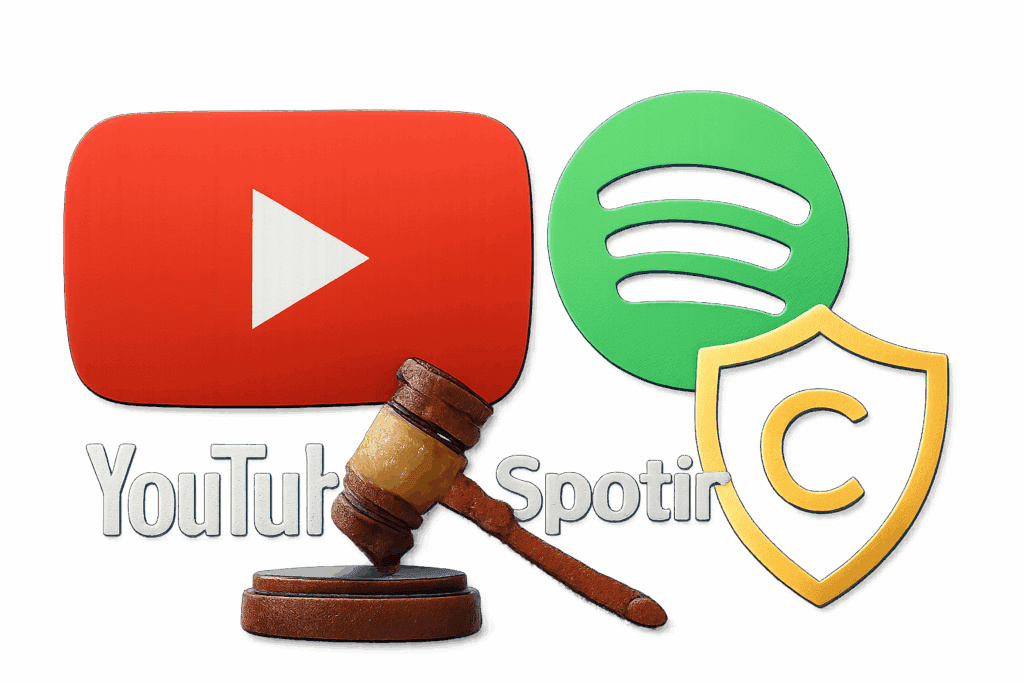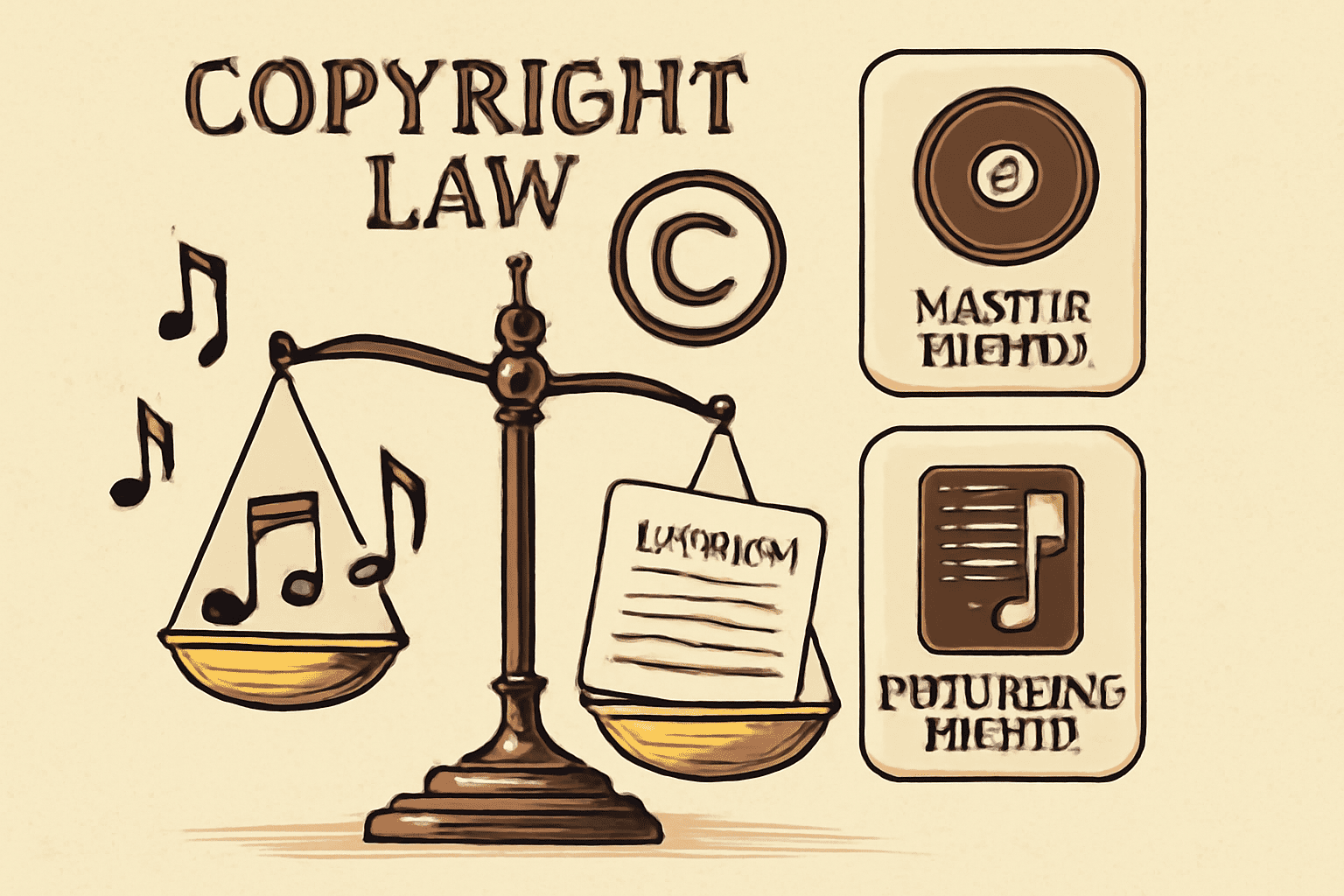If you’ve ever spent hours separating vocals from instrumentals or scoured the web for clean acapella tracks, you’ve probably also asked: Can I legally upload an acapella remix to YouTube or Spotify? The remix culture is alive and kicking—bedroom producers, DJs, and fans alike love putting their own spin on iconic tracks.
But with the click of “upload,” a world of copyright law stands between you and a global audience. Some say “just do it,” others warn “don’t risk your channel.” As someone active in both online production communities and music platforms, I’ve witnessed firsthand the confusion—and occasional chaos—surrounding acapella remixes, takedowns, and copyright claims.
In this post, we dive deep into the rules, real-world experiences from Reddit, and strategies you need to know if you’re considering uploading your own acapella remixes.

The Legal Landscape: Copyright and Derivative Works
Acapella Remixes = Derivative Works
An acapella remix is considered a derivative work—that means you’re creating something new using elements (like the vocal line) from an existing song. In copyright law, derivative works can only be distributed, published, or monetized with the express permission of the original copyright holders.
There are typically two main copyrights involved:
- Master Rights: Ownership of the original recording (usually held by the label or artist)
- Publishing/Composition Rights: For lyrics, melodies, or any part of the written composition (songwriters, publishers)
If you sample or reinterpret the original artist’s vocal for your remix, you generally need clearance on both.
Table: Breakdown of Rights Needed for Acapella Remixes
YouTube: Policies, Claims, and Realities
YouTube’s Content ID & Copyright System
YouTube runs every upload through its Content ID system, scanning for matches against a vast music database. If you upload an acapella remix:
- Immediate flagging/claim: If the system matches vocals or melodies, your remix may be flagged automatically.
- Revenue sharing: Often, the rights holder (artist/label) allows your video to remain, but claims all revenue. You can’t monetize it.
- Removal or strike: In some cases—especially for big artists—the video could be blocked or removed entirely, or you could receive a copyright strike.
What Redditors Say
Reddit threads highlight a few trends:
- Some uploaders manage to keep their remix up, but lose all ad revenue:“You can upload remixes to YouTube, but the algorithm most likely will show copyright… music rights holder will allow you to keep your version up, but they will receive any compensation your video may generate. Or they will not give permission and you will have to take it down.”
- YouTube rarely issues lawsuits, but does enforce revenue and takedowns—especially if your remix goes viral or is monetized.“From the law perspective you always need license to use the sample. You can fool algorithms but that’s another story. Every publisher is subscribed to several [scanners] because today harvesting YT alone can earn about 60% of label income.”
- Low-traffic, non-monetized, or “bootleg” remixes can sometimes slip by, but this is always at the discretion of rightsholders.

How To Upload Remixes Legally to YouTube
- Get written approval/license from original artist/label
- Credit all original creators in your description
- Prepare for Content ID claims and either monetize jointly or accept demonetization
Spotify: Stricter Standards for Releases
Uploading Remixes to Spotify? Very Different Story
Spotify is not YouTube: only licensed distributors (like DistroKid, CD Baby, TuneCore) can release music onto the platform. These services require you to own the rights to everything you upload, including acapella vocals and remixed elements.
- Unauthorized remixes will likely be removed.
- Your distributor may ban you, and repeated offenses can lead to platform-wide blacklists.
- Spotify policies require all music to be pre-cleared of any rights infringement.
Reddit Experiences
- Many producers use cover vocals (hiring or recording their own singers for the acapella), which lets them avoid master rights issues, but they’re “still on the hook” for composition rights (lyrics and core melody).
- Clearing these rights is commonly ignored on minor releases, but it’s always a legal risk.“My guess is the vast majority of these remixes are NOT cleared, and have used a distributor that is very loose with remixes and/or hasn’t been flagged by Spotify yet.”
Table: Spotify vs. YouTube Policy on Acapella Remixes
| Platform | Can you upload (without rights)? | Typical Results | Monetization |
|---|---|---|---|
| YouTube | Sometimes (at risk) | Claim or takedown | Monetization lost |
| Spotify | No, via distributors only | Removal by distributor/Spotify | Account warning |
How Are People Getting Acapella Vocals for Remixes?
Reddit and producer forums mention a host of methods:
- Downloading studio acapellas from YouTube, acapella sites, or stem packs (often not “legal” but widely done)
- Making your own acapellas using stem splitters (e.g., BandLab, Logic Pro, and other DAWs now have built-in vocal isolation)
- Delivering a remix with a “cover vocal” (re-recorded by someone else to avoid master rights issues; still requires composition rights clearance)
Getting Legal: How to Clear Rights for a Remix
Steps to Releasing a Remix Legally
- Identify song rights holders: Use Spotify, label websites, or databases like Harry Fox or ASCAP.
- Contact for permission: Email the artist, label, or publisher for remix rights—some charge fees, others may ignore requests.
- For cover vocals: You only need a mechanical license (for publishing, not the original recording).
- Distribution: Use a distributor that will ensure you have licenses (DistroKid, CD Baby, TuneCore) and report usage/pay royalties.
- Remix competitions: Many artists or labels run these and offer clear rights for distribution if you win or follow rules.
- Platforms like Tracklib: Some platforms license stems and allow limited legal uses for remixes.
“To remix a track, you need either direct permission from the artist/label… or licensing through platforms like Tracklib.”
Firsthand Stories: Reddit in Their Own Words
Real Producer Experiences
“I made a remix with the lyrics of Believe from Cher. Now it says that copyright content was found and… it has no effect on the video… I don’t want to be sued… From the law perspective, you always need license to use the sample.”
“If you have someone else sing the a cappella, you can bypass clearing the master side, but not publishing. You’re still on the hook for that. My guess is the vast majority of these remixes are NOT cleared, and have used a distributor that is very loose with remixes and/or hasn’t been flagged by Spotify yet.”
“Nobody cares about your bootleg remix even if it goes viral as long as you don’t make money from it but you can gain publicity… they still can take it down, but they won’t have many damages to sue for.”
“I usually find a studio acapella on YouTube. If I can’t, I would download the song… import and split it into an acapella myself.”
Data & Quick Reference Tables
Top Ways to Get Acapella Vocals for Remixes
| Method | Is it legal? | Pros | Cons |
|---|---|---|---|
| Studio acapella from packs | Usually no | Fast, clean vocals | Copyright risk |
| Downloading from YouTube | No | Easy, accessible | High copyright risk |
| Cover vocalist | Yes, with license | Avoids master rights | Still need publishing license |
| DAW stem splitting | Depends | DIY, more creative control | May have audio artifacts, copyright risk |
Revenue Impact for Unlicensed Remixes
| Platform | What happens if flagged | Who earns revenue |
|---|---|---|
| YouTube | Monetization claimed, takedown risk | Rights holder |
| Spotify | Song removed, potential ban | N/A |
Final Thoughts
Uploading acapella remixes to YouTube or Spotify is tempting, and in practice, millions of tracks slip online every year. But legally, remixing and sharing acapella edits is only allowed if you’ve secured the right permissions. YouTube sometimes allows them to stay up (with or without ad revenue), but the risk—takedowns, demonetization, even platform bans—is real. Spotify is much less forgiving; distributors require documented rights clearance, and unauthorized remixes are quickly removed.
In short: If you’re remixing for fun, be prepared for your track to be pulled and keep expectations in check. If you want to build a career or monetize your music, always obtain the required licenses and permissions—even if it means extra legwork. A little caution (and a few emails or remix competition entries) can save you huge headaches later.
Frequently Asked Questions (FAQ)
Not legally, unless you have permission from the copyright holders. Your video may be claimed, demonetized, or taken down.
Uploading requires full rights clearances. Distributors need legal proof you own or have licensed all elements, or your song will be removed and your account possibly restricted.
Cover vocals bypass the need for master rights, but you still need a publishing/composition license.
Rights holders may choose to claim them and take any revenue. Big channels or viral hits have a higher risk of takedown.
Contact the rights holders found via Spotify, label sites, or rights organizations. Look for mechanical or sync licenses; remix competitions sometimes provide licenses.
Fair use is a legal gray zone, rarely applies to remixes, and is not a defense for wide distribution or monetization.
There’s still risk. Rights holders can ask platforms to remove unlicensed works regardless of your intent.
SoundCloud operates similar copyright scanning (also uses automated detection and manual reporting), so risks similarly apply.
If the underlying work and specific recording are both in the public domain, you’re safe. Most modern acapellas are not.
Bootlegs might offer publicity but risk takedowns and bans. Success stories exist, but so do horror stories.

Sandra is a music lover who writes for the Acapella Extractors blog. She enjoys discovering fresh sounds, diving into acapella edits, and sharing tips and stories that inspire fellow music enthusiasts.
